April 15, 2025 | 10:51 GMT +7
April 15, 2025 | 10:51 GMT +7
Hotline: 0913.378.918
April 15, 2025 | 10:51 GMT +7
Hotline: 0913.378.918
Nghe An is one of the key regions in Vietnam that consumes a significant amount of animal-based food products. It also serves as a major transit hub for meat, connecting various provinces across the country and facilitating the import of meat from neighboring countries such as Laos and Thailand.
The province currently has over 940 livestock farms, as well as numerous slaughterhouses and meat processing factories. This large-scale livestock and meat processing industry leads to an increased volume of goods being transported and a higher demand for animal-based food products. Given the high concentration of food production and trade in Nghe An, ensuring food safety has become an essential focus.
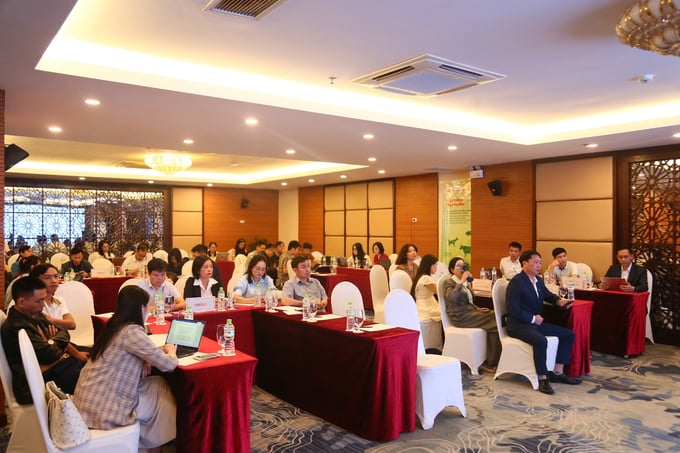
At the seminar, journalists and reporters in Nghe An had the opportunity to share insights on the topic of food safety and effective communication strategies. Photo: NNVN.
On December 6th, in Nghe An, the International Livestock Research Institute (ILRI), in collaboration with the Vietnam Agriculture Newspaper, organized a seminar titled “Training to strengthen food safety communication, connecting researchers, journalists and the community in the animal-based food value chain”.
During the event, Mr. Nguyen Thanh Dung, Deputy Head of the General Office Team at the Vinh Market Management Board (Vinh City, Nghe An Province), shared the initiatives that the Vinh Market Management Board has undertaken to raise awareness about food safety among local vendors.
Following the directions of the Nghe An Provincial People's Committee and relevant authorities, the Market Management Board has not only conducted widespread campaigns to educate vendors on food safety but has also placed a strong emphasis on monitoring and thoroughly checking the origins of products sold at the market.
"First and foremost, it is essential for vendors to ensure the health and well-being of their own families, the people around them and the consumers by providing safe products with traceable origins.
Vinh Market, with its history of hundreds of years of establishment and growth, is one of the oldest and most reputable traditional markets in the city. As such, the Market Management Board continually encourages local vendors to source and sell clean, high-quality meat products that adhere to strict hygiene and food safety standards. By doing so, they not only help preserve the market's long-standing reputation but also foster trust among consumers", Mr. Dung emphasized.
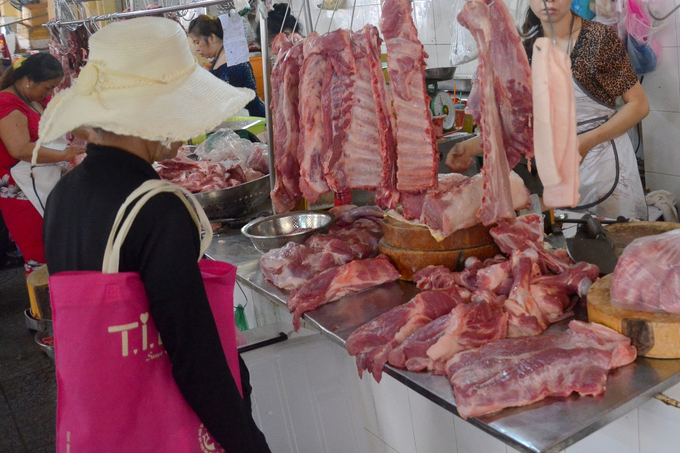
Switching from traditional wooden tables to stainless steel tables helps vendors easily disinfect and ensure food safety hygiene. Photo: Nld.com.
At present, the Vinh Market Management Board is responsible for overseeing the business activities of vendors within the market. However, many of the products sold at the market are still handled in traditional ways and have not yet fully complied with food safety regulations across the entire supply chain.
Furthermore, it is extremely difficult for consumers to check and confirm the safety and hygiene of food products simply by visual inspection. The challenges of supervision and management are compounded by the numerous small-scale food production and sales establishments, which are often dispersed and subject to frequent changes. Additionally, the operating hours of vendors, including slaughtering, begin early in the morning (around 3-4 AM) and processing is done on-site.
To achieve food safety objectives, it is essential to have strong coordination and collaboration between various government agencies and departments, as well as active participation and support from the community. Moving forward, the Market Management Board must work more closely with local authorities to implement and enhance inspection and monitoring measures. This will help address food safety violations in a timely manner and ensure that proper regulations are followed to protect public health.
Encouraging the public to gain a deeper understanding of food safety and equip themselves with sufficient knowledge is crucial in making informed decisions when choosing food. In particular, the media must play an active role in raising awareness about the risks of unsafe food and the measures to enhance food safety throughout the supply chain, ensuring that products meet safety standards before being sold at traditional markets.
Mrs. Ha Thuy Hanh, Vice President of the Vietnam Farm and Agricultural Business Association, shared, “Reputable farms that ensure traceability are typically those that meet livestock production standards and have received certification for disease safety. Therefore, it is important to promote these farms through strong communication efforts so that vendors and food business operators can recognize and choose to source products from these reliable sources".
She also pointed out the need for more widespread communication about the steps that vendors can take to improve food safety, such as upgrading their equipment, maintaining clean animal housing and slaughtering facilities and following hygiene standards. Additionally, increasing efforts to raise consumer awareness is necessary to inspire greater motivation among sellers to proactively ensure the quality and safety of the food they offer.
Translated by Phuong Linh
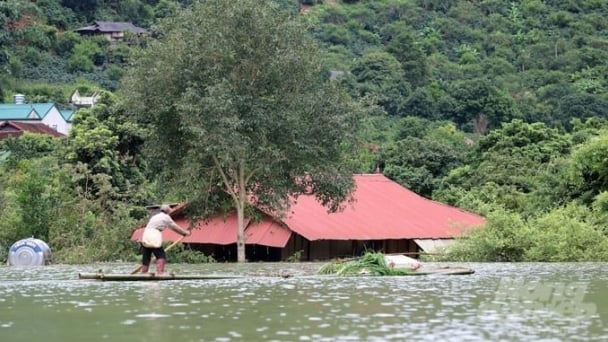
(VAN) This is an important goal that the UN-Habitat organization of the United Nations is implementing in Son La, aiming to respond to climate change and reduce disaster risks.
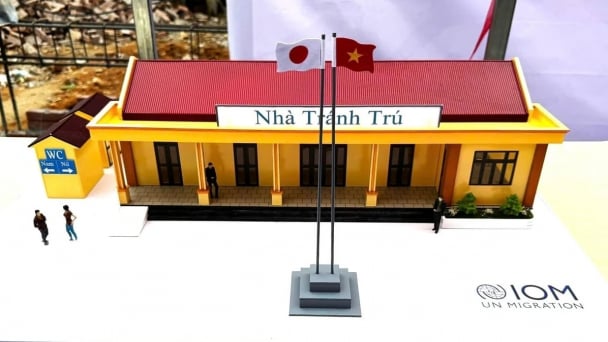
(VAN) In the context of increasingly complex climate change, the International Organization for Migration (IOM) is committed to supporting Vietnam in developing safe and sustainable migration models.
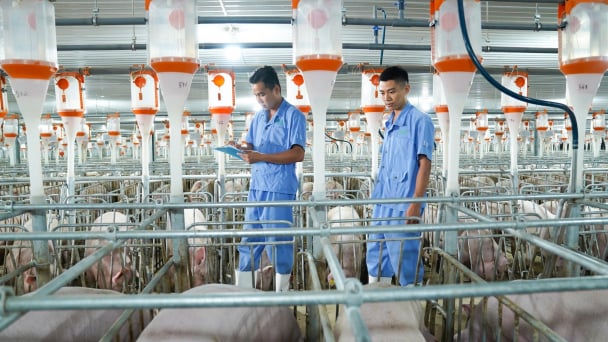
(VAN) In the second quarter, the whole sector plans to accelerate production and penetrate new, high-potential markets, including the Middle East, Africa, and Halal Islamic Countries.
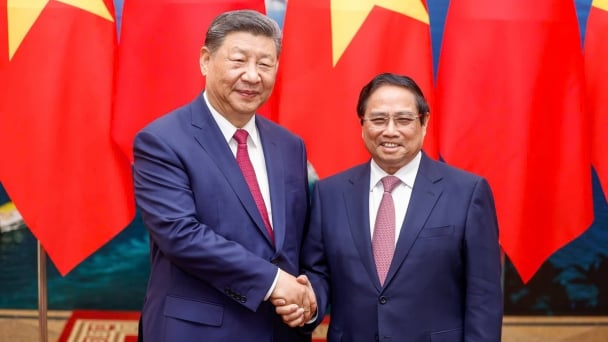
(VAN) On April 14, Prime Minister Pham Minh Chinh met with General Secretary and President of China Xi Jinping, who is on a two-day state visit to Vietnam from April 14 to 15.
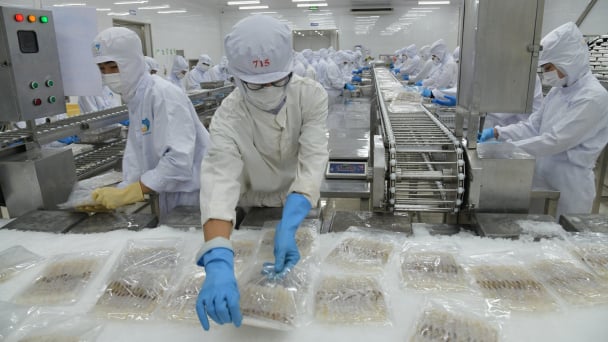
(VAN) This represents the most significant growth in the first quarter in the past four years. From January to March 2025, the export turnover of AFF products was 15.72 billion USD.
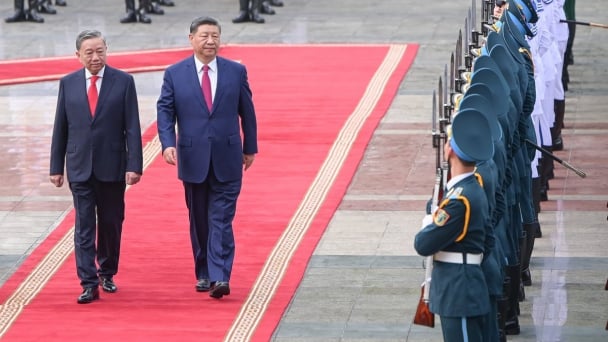
(VAN) On April 14, at the Presidential Palace, Vietnam General Secretary To Lam chaired the welcoming ceremony for General Secretary and President of China Xi Jinping, who is on a two-day state visit.
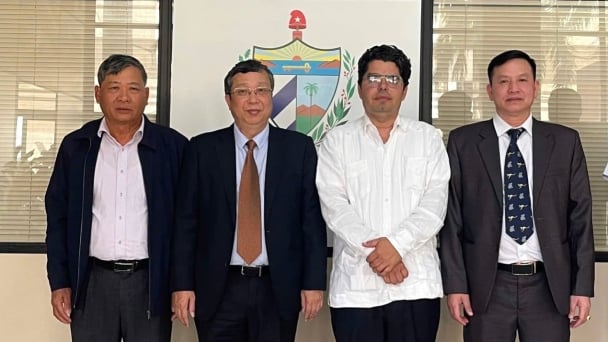
(VAN) The Vietnam-Cuba technical cooperation project to develop rice production phase 5 (2019-2025) has supported Cuba in improving varieties, increasing rice yield and quality.